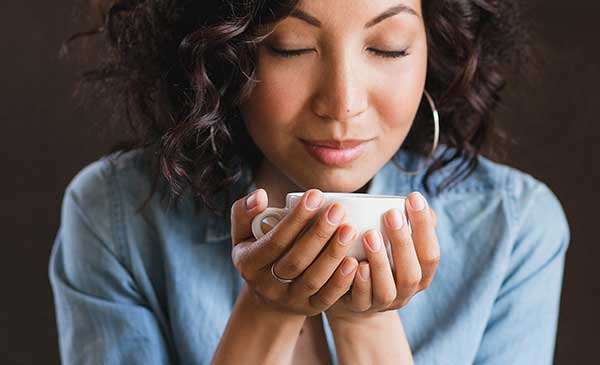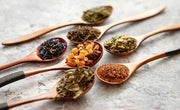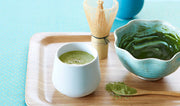Does Tea Expire? (Or worse...does tea go bad?)

If you're a tea lover like the rest of us, you probably have many varieties of tea on your shelf. Some that you prefer in winter, some for summer, tea to wake you up, and tea for nighttime to make you sleepy.
With so many delicious loose leaf tea blends, it's easy to end up with some tea that has been on the shelf for a while. When you discover that pouch tucked far back on the shelf from two winters ago, you're probably wondering "does tea expire?" If so, how can you tell?
Does Tea Go Bad?
Good news tea lover, loose leaf tea does not go "bad". But over time tea leaves will lose flavor, aroma, and color. This doesn't mean you need to toss them out, they are still safe to steep.
Temperature and moisture fluctuations are most often reduce the shelf life of tea and cause your tea to taste stale. This is why it is so important to make sure your tea is stored properly. Make sure you store tea at room temperature in a dark cabinet or opaque container. Avoid storing tea in humid areas of your home and away from anything with a strong odor.
How Long Does Loose Leaf Tea Last?
Some types of tea are like wine and actually get better with age such as pu-erh and some white or oolong teas. Properly stored loose leaf tea will generally retain flavor and potency for 18 to 24 months.
How to Tell if Your Tea has Expired
The best way to test your tea is using your senses. When your tea starts to lose flavor and aroma, it is a sign that your tea is getting a bit old. Does the same aroma get released when you open your container? If the natural oils have evaporated, the aroma will be less intense and your cup of tea will be less flavorful.
Have you noticed tea purchased in tea bags don't release much aroma even when just purchased? Most tea bag teas are simply the 'dust and fannings' of broken tea leaves. Produced in huge batches, tea bags often sit on grocery store shelves for years, becoming stale before they even make it to your pantry.
Characteristics of Fresh Tea
The easiest way to recognize fresh tea is again by using your senses.
Good quality tea leaves should appear smooth and whole. With gentle handling, the tea leaves should not crumble. Once steeped, the leaves should be slippery and smooth to the touch.
Freshly brewed tea will release a strong aroma of the ingredients in the tea or blend. Green tea will release a light, fresh, and grassy aroma and will taste refreshing and bright. White tea should have a smooth flavor while black tea will have an earthly, floral smell with a strong flavor. And of course, chai will release spicy aromas and flavors.
These aromas will continue to release during steeping. If the aroma is really faint, your tea is probably getting a bit old.
What to Do with Tea that has Expired
If that package of tea that you found at the back of your shelf lacks the aroma and flavor it once had, what can you do with it? It may not make a flavorful cup, but there are still other uses for your old tea:
- Steep a tea bath - While your tea may have lost its flavor and aroma, it still likely contains some antioxidant properties which can be absorbed through your skin in a relaxing bath. Using tea in your bath can help reduce inflammation and balance your skin's pH.
- Bake with it - Add subtle nuances to your favorite recipe. If you haven't baked with tea before try this Lemon Turmeric Tea Cake or Peppermint Brownie recipe.
- Marinate meat or chicken like Rachel Ray's tea-soaked chicken breast recipe or tea-infused potatoes.
- Add tea to a smoothie like this delicious blueberry ginger smoothie recipe.





